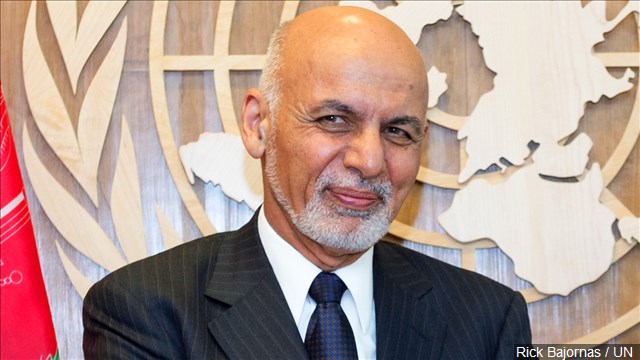Afghan President Ashraf Ghani has rebuffed a U.S. proposal to replace his elected government with an interim administration sharing power with the Taliban, and plans to put forward a counterproposal, officials say.
According to Reuters, quoting senior government officials, Mr. Ghani will propose a new presidential election within the next six months under the observation of the United Nations.
The proposal is likely to be unveiled at an international conference to be hosted by Turkey next month, signaling his stiff opposition to the U.S. proposal.
Washington is pressing for a “peace deal” with the Taliban, as part of which the present administration led by Mr. Ghani will be replaced by an interim administration that will have the representation of the militant group as well.
The government in Kabul, which was not taken into confidence by the U.S. over the latest proposal, has strongly rejected it even as intra-Afghan talks in Doha remain stalled.
The top U.S. negotiator, Zalmay Khalilzad, has been circulating the proposal during his recent visits to regional countries, despite the Ghani administration’s vehement opposition.
Kabul has said it is opposed to any “peace plan” that would require the elected government to step aside for “unelected successors.”
“The counterproposal which we are going to present at the Istanbul meeting would be to call for early presidential elections if the Taliban agree on a ceasefire,” one senior government official was quoted by Reuters as saying on condition of anonymity.
“The president would never agree to step aside and any future government should be formed through democratic process, not a political deal,” another official said.
Reuters quoted a third senior government official as saying that Ghani’s proposal would include possible early elections, without specifying the exact time frame for the vote.
Stalemate in peace talks
The U.S. last year reached an agreement with the Taliban to end the two decades of war. As part of the deal, the U.S. and its allies have to withdraw all troops by May 2021.
The talks between Washington and the Taliban, the details of which are still shrouded in secrecy, were followed by talks between the militant group and the Kabul administration.
The intra-Afghan talks underway since September last year have struggled to make headway due to serious differences between the Afghan sides, primarily due to a lack of clarity on the deal reached between the Taliban and Washington.
Although the new U.S. administration led by Joe Biden had sought a review of the deal, the principal U.S. policy on Afghanistan remains the same, full of ambiguity and double-speak.
Now with weeks left to the May 1 deadline, Washington is vigorously pushing the Ghani administration to share power with the militant group, which has not gone down well with Kabul.
The Taliban, which have held a series of consultations with regional countries in recent months, have so far rejected a ceasefire and said they would not directly join an interim government.
They have warned of “consequences” if the U.S. does not honor the looming deadline to pull the remaining 2,500 troops out of the war-ravaged country that it invaded in 2001.
On March 21, U.S. Defense Secretary Lloyd Austin made a surprise visit to Afghanistan and held talks with President Ghani and other senior officials.
It came a week after Moscow hosted a gathering of leaders from both the Afghan government and the Taliban in a bid to break the deadlock between them.
Afghan Foreign Minister Hanif Atmar has also embarked on a regional tour apparently to shore up support for his government’s counterproposal to the U.S.
On March 22, he arrived on a three-day visit to New Delhi and held talks with senior Indian officials.
NATO Secretary General Jens said “all options remain open” as they wait for Washington to decide on the fast-approaching deadline.
Earlier, the alliance had said that its troops would leave Afghanistan “when the time was right.”
They claim the Taliban “has stepped up its attacks and seeks to regain power once again by force.”
The militant group has rejected the claims, saying it remains committed to the deal, while warning that the U.S. will face consequences if it seeks to violate the deal. (PressTV.com)













